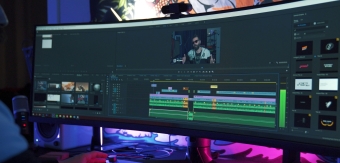Film making is perhaps one of the most eclectic of creative pursuits. Because a film maker is not just on thing. A film maker is a director, producer, writer, and manager rolled into one and those kinds of skills require a certain kind of creative individual – someone as focused as they are inspired and as managerial as they are dynamic.
A film maker is in charge of making, leading, and developing moving picture productions. It is a career that allows an individual to use their leadership as well as creative thinking skills to lead and direct films of all sizes. A film maker spends very long hours ensuring the film is being shot in a way that will provide entertainment for the audience and will highlight the actor's strengths. They will see each film through, from where it's shot, to how the script will be played out, to what actors best fit the roles of the characters.
But knowing how much to charge for your services is something all fledgling freelance film makers struggle with. And that’s why we’re here to offer some guidance.
Freelance film maker rates

Day rates for film makers will vary substantially depending on what’s involved in each project. Pricing will depend on your location, the size of the project and what the client wants you to achieve with it.
As a simple videographer you should expect to charge an hourly rate starting at around £40 at a bare minimum, though this will obviously scale up as you progress. You might also prefer to charge on a per day or a per project basis.
For more information, you can find updated Bectu rate cards here. Bectu is the largest film making union in the UK.
How much should you charge as a freelance film maker?

Being a freelance film maker means you will negotiate your own rate of pay, when you first get started in the industry it is difficult to know what the going rate is per job role. You don’t want to have a rate so low you are taken advantage of, nor too high that you struggle to get hired.
There are several factors to consider when deciding on your rate of pay and they will depend on everything from your experience level to your existing portfolio and where you’re based.
1. Check Out Union Guidelines
Firstly, find your countries guidelines for film maker daily rates. You will find these on film union websites. Often, they do not include lower budgets, short films, or corporate work but this will give you an idea on what people near you are charging.
2. Ask Local Film makers
Be brave and ask other film crew you are working with for advice - alternatively find forums online such as local Facebook groups or on Reddit. Ideally these film makers will have the same job role as yourself and be at the same skill level.
3. Increase Your Wage Yearly
Start small and increase your income every year. This is a technique used by other freelancers (such as graphic designers), when you learn new skills, buy new equipment, or get better at your job role increase your wage to match this.
4. Consider Budget and Usage
The budget will be a major factor when negotiating your rate. You should be getting paid full union rates for features over £1 million or if working on broadcast TV commercials. If you are a videographer, you will have to discuss the usage of footage with your client. If the footage is being used for a range of media (Online, TV, Promo) you will have to alter your rate.
5. Percent of the budget
If you are involved in producing, directing or screenwriting you may be offered to take a percent of the overall budget of the film. For an indie production you can discuss this with the producer, read union guidelines and consider getting an agent to help you negotiate your terms.
Film maker Unions
Depending on your country you may have a film maker union. These unions recommend rates of pay. Unions are prominent in the US and used less so in other countries. As discussed earlier, in the UK we have the major union Bectu – however their rate recommendations only cover professional film and TV productions.
It is likely when you first start out in film you will be working on low budget films and not be getting paid union rates. Even when you are part of a Union your rate will differ depending on the type of production you are working on. In short when it comes to film the budget is everything.
The Budget Is Everything

Keep in mind that when it comes to film how much you are getting paid depends almost entirely on the production budget.
For quick reference if the budget is under £1 million for a feature film it is regarded as low budget and you may take a cut in your wage because of this.
Throughout your film career you will work on a number of low budget productions. At the start of your career this may be to gain experience and make contacts. Low budget films also give you the chance to practice a job role before stepping up.
There are many reasons why you might work on low budgets throughout your career as such you must alter your wage based on the production budget.
Your Job Role

If you are within an entry level job in film, you will likely not be getting paid more than recommended minimum wage. This includes roles such as Runner, PA and Trainee’s.
Your pay rate will increase depending on how skilled (or in demand) your job role is. It makes sense that Head of Department positions will get the highest wages in film and out of them all the above-the-line job roles (Producer, Director, Screenwriter, Cinematographer) will get paid the most.
Another way of paying above-the-line crew is to allocate them a percent of the budget. Directors could get 2-5% of the films overall production budget, Screenwriters 2-3% and Producers often get the highest wage mainly because they work on a film for the longest time and may be taking a financial gamble.
If you ever get to the point where you are taking a percent of a major budget film, you should have agents and advisers to help you negotiate your rate.
Asking around
Of course, these are all rough guidelines, but it should give you some idea how much other freelance film makers are charging.
We would also recommend reaching out to the dozens of film makers on Creativepool for advice not only on charging but on building your portfolio and advancing your career.






